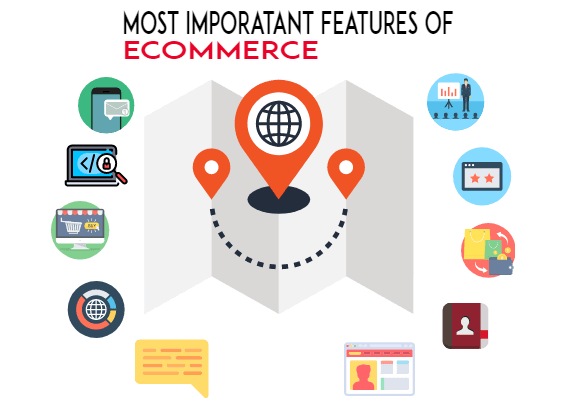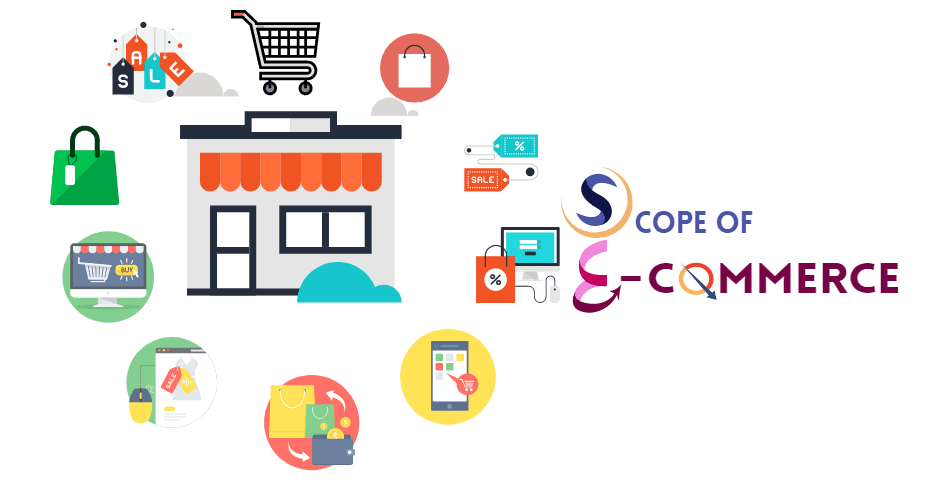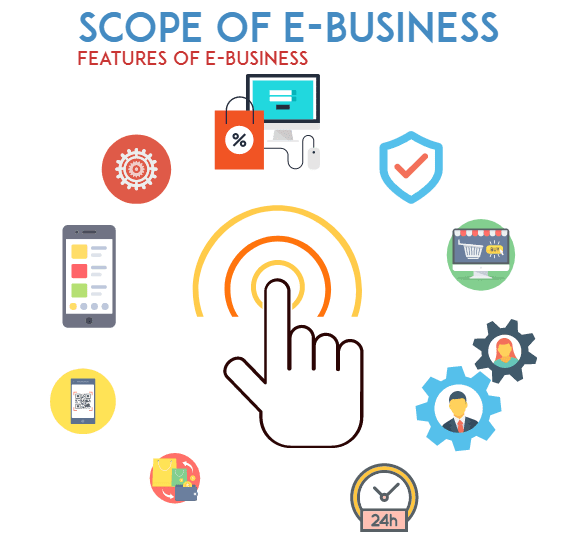Enterprise platforms are typically used to manage and control the content that is generated by different types of what is enterprise platform worker.
They allow workers to have a central place for managing the content generated by various types of workers, including writers, editors, and designers.
They allow users to collaborate and share knowledge on different topics with other users who use them as well.
The applications that are available today range from a simple tabletop platform designed specifically for writers, to fully automated services that can be used across all departments in large enterprises services.
Most such services also include an AI component which allows them to be integrated into workflows.
How enterprises use platforms to differentiate and compete
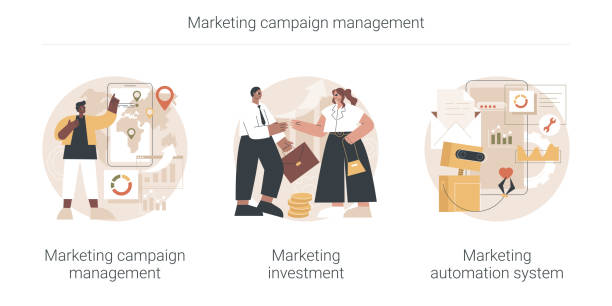
The core function of an enterprise platform is to connect suppliers and consumers. A platform can facilitate effective communication between suppliers and consumers.
A platform contributes to business optimization. A platform manages relationships with customers.
Businesses are using platforms like Alibaba and Amazon to sell products. Companies can use platforms to differentiate from competitors through content rather than a product.
They can create unique and engaging content for their customers because they can use platforms that have a large number of users. and a large number of leads.
This content can be used to build brand awareness and trust, but also influence customer behavior. Other businesses are setting up sales channels to link buyers with sellers.
They do this either by providing a way for someone to buy products directly from the seller or by providing an opportunity for sale-buyback programs where someone buys back securities after they are bought.
The result of the transaction is that, rather than one buying and selling, a buyer buys and a seller sells.
Companies can also use platforms to build up brand equity for themselves and compete with their competitors.
They do this by strengthening their brand identity and reputation through content creation both paid or unpaid, as well as through business models such as advertising or sponsored content.
Types of platforms and their characteristics

An enterprise platform is a set of services that provide potential customers with a (virtual) product or service.
They are also referred to as “enterprise-level software” or “enterprise applications”. The latest platforms are developed and used by large enterprises, multinationals, and corporate IT departments,
who have an interest in keeping their products competitive and responsive to changing customer service demand.
This section is about the platforms that can be used for generating content for specific topics like anti-terrorism, crisis response, or public safety – because they provide useful solutions and solutions for specific problems.
In other words, the platforms can help you write better content without having you do any coding or programming language changes/ skills. Features to be considered with respect to these platforms:
- ERP: Enterprise Resource Planning.
- CRM: Customer Relationship Management.
- SCM: Supply Chain Management.
What is the function of an enterprise platform?
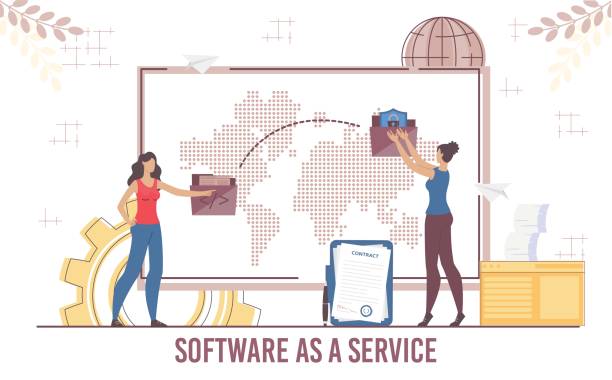
The enterprise application software can also manage customer management information, energy, accounting, and procurement in addition to performing many of the functions of traditional business software.
Typically, it is a server-based service that provides simultaneous access to many users over a network. It may also integrate data from third parties, provide additional functionality, and automate processes.
Enterprises usually use these types of platforms for multiple purposes simultaneously when they need to share various kinds of data between different organizational units of the company.
For example, a manufacturing plant could use ERPs to manage inventory and logistics, CRMs to connect employees with prospects, SCM systems to keep track of product locations and shipments, data repositories to store documents, images, or videos relating to the plant’s history, and more.
Depending on the intended purpose of the platform, some aspects of its functionality may be more important than others.
Which enterprise platforms exist today?
There are four main categories of enterprise platforms available today.
Each category has several subcategories based on their main scope and approach of what they offer.
These categories are:
Enterprise resource planning (ERP): which includes core business functions such as finance and human resources;
Customer relationship management (CRM): which enables organizations to interact directly with existing and prospective customers;
Supply chain management (SCM): which enables businesses to plan, control and monitor the delivery process from raw materials to finished goods and into stores;
Business intelligence and analytics platforms, collect, structure, and analyze data from disparate sources using advanced analytical tools.
They typically combine reporting tools designed to highlight patterns within the data with dashboards that allow users to quickly see critical metrics at a glance. Business intelligence platforms include BI suites,
Business performance management (BPM): data mining tools, and online analytic tools.
Each category has its strengths and weaknesses. To determine the best solution for your organization, take the time to evaluate your requirements and goals first before choosing one.
The most common questions are:
➣ How much flexibility will you have in developing custom features?
➣ Will your staff be able to easily learn how to use the system?
➣ Do you need extensive visibility into key operational activities or just basic reporting capabilities?
➣ What kind of scalability does your current data infrastructure support?
➣ Is there enough room to expand your operations once you get started with the chosen platform?
What is an enterprise integration platform Technology?

An enterprise integration platform (EIP) is a software tool that helps organizations automate processes and drive better results.
An EIP is a set of software tools, or components, with one or more common features.
For example:
EIPs (sometimes referred to as ERP systems, ERP systems, enterprise resource planning systems, or ERPs) are software applications that integrate with a company’s IT infrastructure, enabling organizations to manage their business processes and improve productivity.
Some EIPs provide functional service provisioning and management for the enterprise. Others focus mainly on workflow automation. Still, other EIPs are focused solely on integrating legacy systems.
As of 2016, there were approximately 250 EIP solutions commercially available.
They range from relatively inexpensive open-source offerings suitable for small companies to high-end commercial products costing tens of thousands of dollars per seat.
In large enterprises, the average cost of ownership per user can be hundreds of thousands of dollars per year in addition to software licensing fees, there are ongoing maintenance and implementation costs as well as support services.
How do enterprise platforms work?
By definition, enterprise platforms enable organizations to simplify their business processes by consolidating and automating them across all departments in order to increase efficiency.
The goal is to streamline corporate processes so that they run automatically without requiring manual intervention.
Enterprise platforms typically consist of several modules, each addressing specific needs. For example, a simple CRM system may include:
- Accounts payable module
- Customer relationship management module
- Human resources module
- Inventory management module
What is a feature of platforms in enterprise platforms?
| ‣ A feature of enterprise platforms includes the ability to create content for specific clients, with a focus on specific topics, using content creation tools such as blogs, wikis, or social networks. It also provides access controls and audit trails. |
| ‣ This enables individual users to post customized content and receive feedback at any stage of its development. |
| ‣ Using enterprise platforms means making changes to internal processes and standards rather than focusing on building new apps for different operating systems. |
| ‣ It can be hard to keep track of multiple platforms, which often leads to errors being made during implementation. |
| ‣ Platforms give business Platforms usually offer standard interfaces between various types of technology, including websites, mobile phones, tablets, email, and social media. |
| ‣ The opportunity to share knowledge through collaboration tools, online training courses, and user communities. |
When should you choose an enterprise platform?

Good enterprise platforms allow you to do everything with one tool. If you want to generate content, automate your workflow and as a result save time, then an enterprise platform is what you need.
An enterprise platform helps make your business easier for you and your clients by giving you the tools and UI that you need so that the work gets done faster.
It should also be flexible enough to accommodate the ever-changing needs of businesses since it has to adapt themselves to change.
An enterprise platform can also include Content management systems (CMS) like WordPress, Drupal, or WordPress, a list of enterprise software applications like Slack or Skype, web development like Laravel or AngularJS, or even APIs for CRM systems like Salesforce.
A good business idea is to choose an established multi-channel sales channel solution in order to have a solid platform that supports every kind of sales channel and also helps your clients convert sales leads into actual sales.
The portfolio solution should allow you to:-
⦿ Scatter pieces across multiple sales channels- Add features based on user experience needs like call center integration, CRM integration, etc.- Work with the right tools like Salesforce, JIRA, etc.
⦿ In order to work with any sales channel (preferably CRM) – facilitate the business process like recording sales calls, onboarding new clients, dealing with email campaigns, etc.
There are many different approaches to a traditional portfolio solution comprising several channels and some of these involve strategies around ‘channels.
⦿ Depending on your needs and the size of your business you will likely find it helpful to think about your portfolio strategy holistically rather than just in terms of channels.
⦿ Each channel may be very different from others depending upon your product offering and your client base but they all require something similar: the ability to manage them efficiently.
⦿ Channels are only one part of the larger picture though. They don’t necessarily exist independently and if they do, there’s no reason why your salespeople shouldn’t use more than one type of channel.
Why Is Portfolio Management Important?

Portfolio management gives you the flexibility to sell your services to the right customer experience at the right price point.
Also, when you’re managing the whole sales process, you have complete control over how the sale happens.
That means no surprises, no miscommunication, and fewer headaches later down the line. It saves money because you spend less on marketing, training, and sales operations.
You can concentrate on doing what you do best – solve problems and deliver high-quality solutions. Your sales forces can focus their energy on closing deals instead of having to deal with sales pipeline reporting.
When you combine real-time data with analytics and predictive insights, portfolio management becomes invaluable in generating revenue where and when needed.
There’s also greater operational efficiency and reduced risk because you know exactly who is buying and most importantly what products they’re interested in.
Portfolio management is not just a way to manage your business; it is your business. Without it, you lose control of your sales funnel!
What is Enterprise platform Accenture?
‣ Accompanying Accenture Intelligent Enterprise Platform is a comprehensive set of tools that help companies make the right investments and achieve rapid value realization.
‣ Using a simplified, unified, and guided approach, the platform fosters collaboration across the entire enterprise transformation journey.
‣ The platform supports key processes such as ideation to delivery within Accenture’s global matrix organization. You get a single view of the market regardless of region or language.
‣ This ensures that the appropriate resources are available for every project, helping you accelerate the time to market.
‣ Through intelligent automation technologies such as rule-based workflow engines, automated document routing, and advanced artificial intelligence, you gain deep visibility into activities across the organization.
‣ This helps you optimize costs while growing revenues by automating repetitive tasks or identifying opportunities for additional innovation.
Who Can Benefit:
Large enterprises need to implement new technology solutions faster to compete effectively in today’s marketplace.
But they need to move quickly without compromising quality. Because they’re often large organizations with complex workflows, they require tools and expertise that allow them to integrate and automate various systems efficiently and seamlessly.
They want to align the entire team around specific initiatives and projects so everyone can contribute fully and collaboratively toward achieving common goals.
With intelligent automation, you gain better insight into which resource combinations provide optimal results and eliminate redundancy.
Your people collaborate more easily, thus accelerating the pace at which ideas become reality. And with deeper visibility throughout your organization, you will be able to spot emerging trends and opportunities much faster.
In addition, you can save valuable time — for example, by integrating different systems using the same APIs, increasing productivity, and reducing error rates.
How Do I Know If My Organization Needs An Enterprise Platform Company?

◉ You should consider whether you should build an enterprise platform if your company has four or more major product lines, several distinct market segments (such as manufacturing versus software), multiple geographies, or more than 15 employees overall.
◉ If one of these criteria applies to your organization, then you may need an enterprise platform to support your business strategy.
◉ For example, if you have multiple product lines and you want to maximize cross-sell opportunities between complementary products, then you might benefit from combining operations, marketing, design, development tools, and customer experience functions together under a single organizational structure.
◉ Such a structure would enable you to share knowledge and ensure alignment around common strategies, tactics, processes, metrics, KPIs, and measurement systems.
◉ Also, if you plan on acquiring another company, you must ensure that any acquired technology platforms operate in a manner similar to your own.
◉ Finally, if your company plans on merging with another organization, you cannot simply merge two disparate platforms; rather, you must determine how best to blend the capabilities and experiences of each.
Enterprise Platform Benefits
An enterprise platform delivers powerful benefits through improved productivity and reduced risk.
It can help streamline and simplify business function processes via digital transformation.
A platform provides the foundation required to leverage emerging technologies like artificial intelligence, cognitive computing, machine learning, blockchain, robotics, augmented reality, virtual reality, and the Internet of Things.
FAQ {Frequently Asked Question}
What describes an enterprise platform?
Business platforms connect people, processes, and other technologies to deliver on a strategic business objectives goal. Enterprise Platforms are a set of technologies and tools that serve as a platform for developing other applications, processes, or technologies
What is enterprise platform in Accenture?
Accenture Intelligent Enterprise Platform includes comprehensive tools that assist organizations in making the right investments and achieving rapid value realization.
It fosters collaboration across the entire enterprise transformation journey with a simplified, unified, and guided approach.
Which statement is true of an enterprise platform?
After being configured, enterprise platforms can help organizations achieve their goals. If an organization is larger than a certain size, enterprise platforms can be helpful.
Related Term
- What is Financial Strategy | Financial Management
- Who is the principal federal official for domestic incident management?
- Which Resource Management Task Deploys or Activates Personnel And Resources
- Which Type of Business Is Strong Steel Manufacturers & Structural Steel
- What Is B2k Marketing | B2k Media Marketing?
- What Is B2k Marketing | B2k Media Marketing?What Type of Agreement Is Used To Form A Partnership Business Partnership Agreement?
- How Can The Extensibility of A Platform Benefit a Business?
- What Kind of Business Organization Are Caleb And Anna Operating Under Now?
- What Must An Entrepreneur Assume When Starting A Business Entrepreneurship?
- How Can Formal Business Documents Help Managers Solve Problems Resources
- Which Resource Management Task Enables Resource Coordination Throughout The Incident?
- Upsales Sales And Marketing Platform Businesses Integration
- How Are Principles of Management Formed?
- What Is Strategic Planning and Strategic Plans
- What Is The Core Function of An Enterprise Platform
- The objective of iso 9000 Family of Quality Management Is
- What is Information System | Characteristics of Information System
- Which Helps Enable An Oligopoly To Form Within A Market?
- What is Undifferentiated Marketing | Undifferentiated Marketing Strategy?
- How To Use Rural Marketing Strategies To Increase Your Business Growth
- International Marketing Research
- Features Of International Marketing
- Functions of Marketing
- Scope of Marketing Research
- What do you understand by Surrogate Marketing
- Marketing Fundamentals
- 5 Ways to Use How Can Performance Planner Serve Your Business to Achieve Your…
- Nature And Significance of Management
- Marketing Intelligence and Planning
- What Is Service Marketing Triangle
- 5 Key Facts You Need To Know About UniLink Marketing LLP
- Does rural marketing require strategies?
- Can an understanding of the multidimensional nature of quality lead to improved product design
- A Comprehensive Guide To The Best MBA In Sales And Marketing
- Features Of International Marketing
- How To Build a Successful RCM Business Plan
- Amazon Business Quiz – Amazon Business Extra Savings Quiz App-only Daily Contest
- Mi Lifestyle Login & Milifestyle Login Mobile App Features
Conclusion of What is Enterprise Platform?
Enterprise Platforms are a set of technologies and tools that serve as a foundation for the development of other enterprise application software, processes, or technologies.
It consists of combinations of capabilities that are typically delivered by multiple enterprise systems, which are used to fulfill cross-functional responsibilities.
It is more important to note that enterprise systems consist of a set of integrated software applications with different capabilities that work together.
Solutions from Enterprise Business Solutions include software applications (desktop and mobile) or software systems (server and cloud-based). these solutions operate on shared information (or centralized information).
‣ I hope friends, through this article, I have given you information about What is Enterprise Platform? You must have got the information. So share your suggestions with us.
Like this information Or have Something to share!








